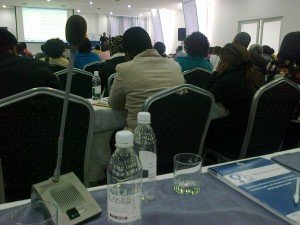 The recent National Gender Summit was contacted by the Commission for Gender Equality in Johannesburg form the 9th to the 11th of April 2014. The summit sought to critically assess the successes and challenges of the South African gender machinery. While the summit celebrated the achievements of the past 20 years, it also noted with concern that there are many challenges which the gender machinery still face. The challenges include underfunding, poor accountability mechanisms, lack of a coordinated approach, persistent patriarchal values and practices and poor implementation of policies and legislations on gender equality. The summit therefore sought to find ways of coordinating, supporting and strengthening the machinery in order to make it more efficient and effective. The recommendations which were adopted include increasing the budget for gender equality; supporting NGOs which work on gender issues, increasing the number of women in political and other positions of power and influence and addressing discrimination against LGBT people in different spheres of their lives. The Commission’s functions are to monitor all organs of society to ensure that gender equality is safeguarded and promoted, assess legislations from a gender perspective, commission research and make recommendations to Parliament and other authorities, educate and inform the public, investigate complaints on gender-related issues and monitor South Africa’s progress towards gender equality in relation to international norms and standards.
The recent National Gender Summit was contacted by the Commission for Gender Equality in Johannesburg form the 9th to the 11th of April 2014. The summit sought to critically assess the successes and challenges of the South African gender machinery. While the summit celebrated the achievements of the past 20 years, it also noted with concern that there are many challenges which the gender machinery still face. The challenges include underfunding, poor accountability mechanisms, lack of a coordinated approach, persistent patriarchal values and practices and poor implementation of policies and legislations on gender equality. The summit therefore sought to find ways of coordinating, supporting and strengthening the machinery in order to make it more efficient and effective. The recommendations which were adopted include increasing the budget for gender equality; supporting NGOs which work on gender issues, increasing the number of women in political and other positions of power and influence and addressing discrimination against LGBT people in different spheres of their lives. The Commission’s functions are to monitor all organs of society to ensure that gender equality is safeguarded and promoted, assess legislations from a gender perspective, commission research and make recommendations to Parliament and other authorities, educate and inform the public, investigate complaints on gender-related issues and monitor South Africa’s progress towards gender equality in relation to international norms and standards.


0 Comments